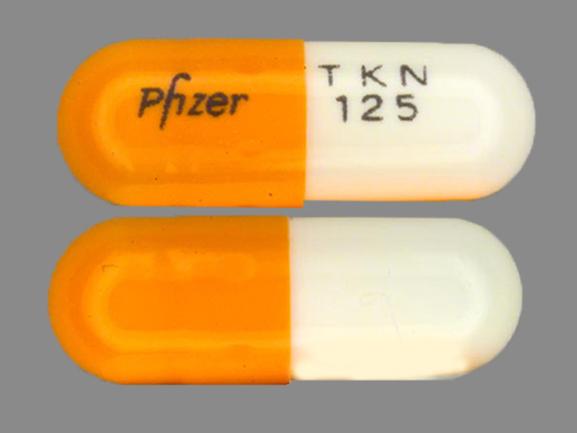Tikosyn Disease Interactions
There are 5 disease interactions with Tikosyn (dofetilide).
Dofetilide (applies to Tikosyn) long QT interval
Major Potential Hazard, Moderate plausibility. Applicable conditions: Long QT Syndrome
Dofetilide is contraindicated in patients with congenital or acquired long QT syndromes. Dofetilide should not be used in patients with a baseline QT interval of QTc >440 msec (500 msec in patients with ventricular conduction abnormalities).
References
- "Product Information. Tikosyn (dofetilide)." Pfizer U.S. Pharmaceuticals PROD (2001):
Dofetilide (applies to Tikosyn) renal impairment
Major Potential Hazard, Moderate plausibility. Applicable conditions: Renal Dysfunction
Dofetilide is contraindicated in patients with severe renal impairment (calculated creatinine clearance <20 mL/min). The risk of QT interval prolongation, Torsade de Pointes, and ventricular arrhythmias is directly related to dofetilide plasma concentration. A reduced creatinine clearance will increase dofetilide plasma concentration. In patients with mild and moderate renal impairment, the risk of arrhythmias can be reduced by controlling the plasma concentration through adjustment of the initial dofetilide dose according to creatinine clearance. Patients undergoing dialysis were not included in clinical studies, and appropriate dosing recommendations for these patients are unknown. There is no information about the effectiveness of hemodialysis in removing dofetilide from plasma.
References
- "Product Information. Tikosyn (dofetilide)." Pfizer U.S. Pharmaceuticals PROD (2001):
Dofetilide (applies to Tikosyn) electrolyte imbalance
Moderate Potential Hazard, Moderate plausibility. Applicable conditions: Diarrhea, Vomiting, Dehydration, Electrolyte Abnormalities
Dofetilide should be avoided in patients that experience symptoms that may be associated with altered electrolyte balance, such as excessive or prolonged diarrhea, sweating, or vomiting or loss of appetite or thirst, these conditions should immediately be reported to their health care provider.
References
- "Product Information. Tikosyn (dofetilide)." Pfizer U.S. Pharmaceuticals PROD (2001):
Dofetilide (applies to Tikosyn) hepatic impairment
Moderate Potential Hazard, Moderate plausibility. Applicable conditions: Liver Disease
Dofetilide has not been studied in patients with severe hepatic impairment. Dofetilide should be used with particular caution in these patients.
References
- "Product Information. Tikosyn (dofetilide)." Pfizer U.S. Pharmaceuticals PROD (2001):
Dofetilide (applies to Tikosyn) hypokalemia
Moderate Potential Hazard, Moderate plausibility.
Serum potassium should be maintained within the normal range before dofetilide treatment is initiated and should be maintained within the normal range while the patient remains on dofetilide therapy. In clinical trials, potassium levels were generally maintained above 3.6 to 4.0 mEq/L. Exercise care when using this agent in patients with hypokalemia.
References
- "Product Information. Tikosyn (dofetilide)." Pfizer U.S. Pharmaceuticals PROD (2001):
Tikosyn drug interactions
There are 407 drug interactions with Tikosyn (dofetilide).
Tikosyn alcohol/food interactions
There is 1 alcohol/food interaction with Tikosyn (dofetilide).
More about Tikosyn (dofetilide)
- Tikosyn consumer information
- Check interactions
- Compare alternatives
- Pricing & coupons
- Reviews (60)
- Drug images
- Side effects
- Dosage information
- During pregnancy
- Generic availability
- Drug class: group III antiarrhythmics
- En español
Related treatment guides
Drug Interaction Classification
| Highly clinically significant. Avoid combinations; the risk of the interaction outweighs the benefit. | |
| Moderately clinically significant. Usually avoid combinations; use it only under special circumstances. | |
| Minimally clinically significant. Minimize risk; assess risk and consider an alternative drug, take steps to circumvent the interaction risk and/or institute a monitoring plan. | |
| No interaction information available. |
Further information
Always consult your healthcare provider to ensure the information displayed on this page applies to your personal circumstances.


